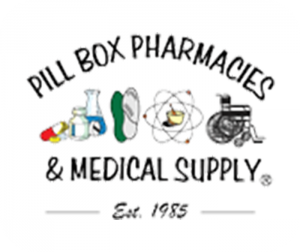Forget New Year’s resolutions. Healthful living is a 365-day process made up of small steps that can add up to a big change. Make 2021 the year you become the best you that you can be.
- Eat more fruits and vegetables

How important are fruits and vegetables? A diet rich in produce can help lower blood pressure, reduce the risk of heart disease and stroke and protect eye health.
- Move more

Exercise can improve brain health, help you manage your weight, and strengthen your bones and muscles. Regular physical activity can also reduce your chances of developing type 2 diabetes as well as reduce your likelihood of developing heart disease or stroke. Try to get at least 150 minutes of exercise each week.2
- Eat earlier
Consuming calories later in the day may be associated with obesity. When researchers compared 6 p.m. dinners to 10 p.m. dinners, they found higher blood sugar levels and less fat burned overnight for the late dinners.3
- Practice gratitude
Grateful people are more likely to take better care of themselves, including eating better and exercising more. But practicing gratitude does more than lessen your aches and pains; it also reduces toxic emotions and lowers stress.4
- Eat breakfast
In addition to giving you a boost to start your day, recent studies have shown that people who eat a hearty breakfast may burn twice as many calories as those who eat their biggest meal in the evening.5 Another study showed that adults with type 2 diabetes were better able to control their blood sugar by eating a high-energy meal for breakfast and a low-energy one for dinner. Simply changing the timing of meals can reduce glucose peaks throughout the day.6
- Drink more water
Your body needs water to survive, yet many of us don’t drink enough. You have likely heard that you should drink at least eight 8 oz. glasses of water a day. While that is a reasonable goal, the fact is each of our needs is different, based on our health, activity level, and even where we live.7
- Power down
One in four Americans brings their cell phone to bed with them. Six in 10 use a laptop within an hour of going to bed. Yet studies have shown that the blue light from devices can interfere with sleep. Power down at least an hour before bedtime and make your bedroom a device-free zone.8
- Get more sleep
Not getting enough sleep is linked to an increased risk of obesity, stroke, heart attacks, type 2 diabetes, depression, even Alzheimer’s disease.9
- Try new things
Trying new things keeps your mind and body active. In fact, learning a new skill can lead to changes in adult brains, creating new connections between brain cells.10
- Quit smoking
The benefits once you quit smoking can be seen almost immediately. In fact, within 20 minutes of quitting, your heart rate and blood pressure will drop. Over time, your circulation and lung function will improve, and your risk of heart attack, stroke, and smoking-related cancers will decrease.11
- Build muscle
For most adults, adding strength training to your exercise plan two to three times a week can have many health benefits, especially for seniors. In addition to increasing muscle strength, strength training can preserve bone density and reduce the risk of osteoporosis. Always check with your doctor before starting a new exercise plan12
- Get outside
Nature has been linked to many health benefits, from lowering stress to increasing attention, even improving empathy and cooperation. From a walk in your local park to hiking in the wilderness, there is increasing evidence that nature positively impacts both our physical and mental wellbeing.13
We’re here to help
We are proud to be your community pharmacy, and we are always here – for you, your family, and your health.
Nothing herein constitutes medical advice, diagnosis, or treatment, or is a substitute for professional advice. You should always seek the advice of your physician or other medical professional if you have questions or concerns about a medical condition.











